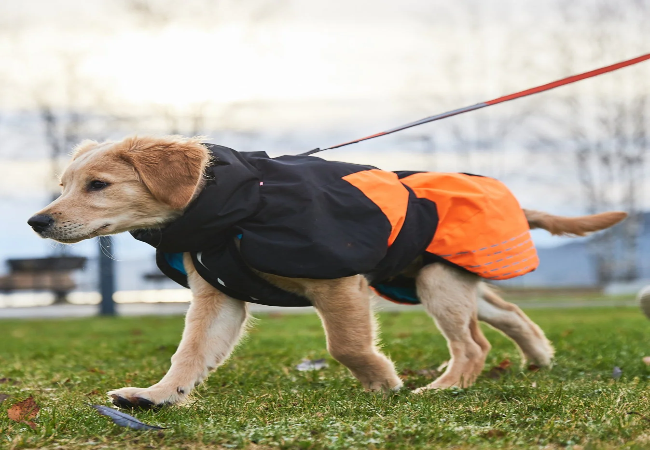Is Your Puppy Sick? 2025 Vet-Reviewed Early Warning Signs 🐶

In this article
Is Your Puppy Sick? 2025 Vet-Reviewed Early Warning Signs 🐶
By Dr. Duncan Houston BVSc
Puppies instinctively conceal illness—so it falls to attentive caregivers to spot subtle clues that something isn’t right. This guide details early warning signs—ranging from eye/nose issues to behavior and elimination changes—and explains why each matters,
1. 👁 Eye & Nose Discharge or Irritation
Clear tear staining is often normal, but thick, yellow/green discharge, squinting, pawing, cloudiness or redness—particularly around the eyes—suggests infection, foreign bodies, or distemper.
- Symptoms: watery, crusty, smelly eyes; pawing at face.
- Concern: conjunctivitis, infection, kennel cough, and distemper.
2. 🤒 Fever or Abnormal Temperature
Normal puppy temperature is 99–102.5 °F at 4 weeks of age. A resting temperature >103 °F or <99 °F—combined with lethargy, appetite loss, or shivering—could indicate serious illness.
- Check rectally using a pet thermometer.
- Elevated temperature may signal infection; low temperature suggests shock or hypothermia.
- Action: seek vet care immediately.
3. 🍽 Appetite & Thirst Changes
Sudden losses or increases in appetite or water consumption may signal digestive disease, infection, diabetes, or kidney issues.
- Refusal to eat >24 hrs or lack of interest in favorite foods.
- Excessive thirst or begging behavior.
4. 💤 Lethargy or Behavior Changes
Puppies are playful by nature—sluggishness, isolation, whimpering, or irritability may indicate pain, infection, or congenital issues.
- Signs: sleeping more, withdrawing, unwilling to play.
- Concern: pain, anemia, heart disease, and early parvo/distemper.
- Action: monitor closely, call vet if no improvement in 24 hrs.
5. 🤢 Vomiting & Diarrhea
While puppies commonly vomit/defecate due to teething or diet changes, persistent vomiting/diarrhea—especially with blood, mucus, or fever—indicates infection (parvo, distemper), parasites, or blockages.
- When mild: feed small bland meals (rice & boiled chicken).
- When serious: blood in stool, multiple vomits per day, dehydration.
- Action: urgent vet visit—especially if fever, pale gums, or weakness.
6. 🚾 Changes in Bathroom Habits
Increased or decreased urination, accidents, straining, or blood in urine can indicate urinary tract infection, kidney issues, diabetes, or congenital malformations.
- Monitor output and ability to urinate/poop normally.
- Action: note frequency/appearance—bring sample to vet.
7. 🐕 Respiratory Signs—Coughing, Sneezing, Breathing Problems
Frequent coughs, honking, sneezing, rattling, or labored breathing may mean kennel cough, pneumonia, distemper, or aspiration pneumonia.
- If the cough lasts >5 days or respiratory distress occurs, seek vet help.
- Calm environment, hydration, and use **Purrz** diffuser to support breathing.
8. 🪶 Weight Loss or Failure to Grow
Regular weigh-ins are vital—unexpected weight loss, failure to gain, or plateau without reason may indicate illness, parasites, or congenital disease.
- Use weekly weigh-ins or body condition scoring.
9. 🐛 Skin, Coat, and Ear Issues
Redness, sores, bald patches, itching, scratching, ear odor, head shaking—these may be signs of parasites (fleas/mites), infections, or allergies.
- Inspect coat, skin, and ears weekly.
- Action: Early treatment can prevent infestations or chronic dermatitis.
10. 👣 Neurological Signs & Abnormalities
Persistent shaking, tremors, head tilts, unsteady gait, or seizures are serious red flags pointing to distemper or neurological conditions.
- Monitor onset and pattern—note time, duration.
- Action: An emergency vet visit is essential.
11. ⚠️ Lumps, Bumps, or Bleeding
While less common in puppies, strange lumps, unexplained bleeding, or persistent bad breath could signal congenital tumors, trauma, or dental disease.
- Check skin and gums regularly.
- Action: Any abnormality lasting more than a week should be examined.
12. 📅 The Early Attention Timeline
- Note the first sign—no matter how small.
- If symptoms grow or last >24 hours, arrange a vet visit.
- Follow vet treatment, maintain supportive care at home.
13. ✅ Support Tools & Recovery Aids
- Woopf: indoor enrichment to keep your pup calm during recovery.
14. 👩⚕️ When It's an Emergency
Visit your vet or emergency clinic immediately for:**
- Persistent vomiting/diarrhea with blood, fever, or collapse.
- Labored breathing, seizures, or sudden paralysis.
- High/low fevers, dehydration, or inability to stand.
15. ✅ Final Takeaways
- Early detection dramatically improves outcomes for puppies.
- Track changes in appetite, behaviour, elimination, and vital signs.
- Stay calm, act quickly—your attentiveness could save your puppy’s life.



